Censorship in Boi Mela: A cause for concern?

Bangla Academy has recently banned Adarsha publishing house from participating in the Amar Ekushey Boi Mela. A press release signed by Mohammad Akbar Hossain, Deputy Director of the public relations sub-division of Bangla Academy, stated that the publication was barred from having a stall on the grounds of one of their books containing political obscenity.
The press release by Bangla Academy stated that the book in question, Bangalir Mediocrityr Shondhane by Faham Abdus Salam, contains obscene and distasteful comments about Bengali nationalism, about the country's justice system, Bangabandhu Sheikh Mujibur Rahman and his March 7 speech, and about the Prime Minister Sheikh Hasina.
Reacting to the news, Mahabub Rahman, Chief Executive Officer of Adarsha, has said to The Daily Star, "We do plan to take legal actions against this issue. In terms of our defence, we are unsure as to why a book which is not banned in Bangladesh can be banned from the Boi Mela. We believe that this is not justified."
As we know, the Boi Mela originated through an informal initiative by Chittaranjan Saha, the founder of Muktodhara, who sought to celebrate the Language Movement in February of 1972. What began as a three day endeavour, with a single stall set up at the Bangla Academy's southern gate, has evolved to become an integral part of the nation's identity. It resonates with a value omnipresent in our nation's founding: freedom.
These humble origins of the Boi Mela reflect freedom in two iterations—freedom of speech as it manifests in book publishing, as well as the freedom to occupy space for these books without requiring permission from policies that can be subjective. Most importantly, its ties with our Language Movement make freedom of speech and expression an inherent aspect of the Boi Mela.
Are these recent incidents of censorship, then, an antithesis of the original spirit of Boi Mela, or has the book fair always been at the intersection of political censorship?
"We had never come across censorship in Boi Mela back in the days. Everyone used to freely participate in the Boi Mela", Professor Emeritus Serajul Islam Chowdhury of University of Dhaka tells Daily Star Books.
"But, in more recent times, we have seen examples of censorship when Avijit Roy and his publisher Faisal Arefin Dipan were violently murdered [in 2015]. Censorship causes disorganisation and takes away the reader's right to read freely," he added.
Publisher and editor of Shuddhashar, Ahmedur Rashid Chowdhury, who was attacked for publishing materials written by atheist and secular writers and is currently in exile in Norway, offers an adjacent viewpoint. Echoing how censorship takes away the reader's right to read, he says, "There was always some hidden censorship. I remember during the government of 1/11, I suspended publication of a few books."
This year, the concerned authorities have decided to form a taskforce that will decide which books are against the policies of the fair's organising body. KM Khalid, State Minister for Cultural Affairs, has said that the formation of the taskforce will not curb freedom of expression and free-thinking.
Daily Star Books wanted to find out how the taskforce plans to preserve freedom of speech in the book fair. However, Boi Mela Convener Dr AKM Muzahidul Islam declined to make any further comments about the issue concerning Adarsha, beyond what has already been explained in their press release.
And so the question remains, what defines "obscenity" in books that are banned from the book fair?
"People say that regulations can be present in dealing with obscenity. However, the bigger challenge is to define obscenity itself", commented Professor Emeritus Serajul Islam Chowdhury. "Given how debatable the issue itself is, I don't think such regulations should exist".
"If anyone thinks that a particular book is wrong or that a particular book is problematic, then they should come forward and write another book or essay showing the faults of the writer in question, resulting in productive and fruitful discourse. It is futile to simply censor or ban authors", he adds.
Some readers are echoing the sentiment.
Samiha Patwary, a devout book reader who visits the Boi Mela nearly every day each year, comments, "If a book has content that directly harms the sentiment of a community on a severe level, then it makes sense to ban the book. For example, holocaust denial is a crime in many countries because it's a direct assault on the truth and the sentiments of the victims. But if the book doesn't harm any community's sentiment, then banning it by the Boi Mela authority along with all other legit books by the publisher is downright wrong. If the same book can be made legally available in stores outside of Boi Mela, why can't it be sold in Boi Mela?"
Shuddhashar publisher Ahmedur Rashid Chowdhury points out that Bangladesh needs to formulate a national book policy, as well as a comprehensive bibliography policy, alongside guidelines for the rights of authors and publishers, for contracts, and higher standards for editing and translating.
"However, until the democratic sense of the state is awakened, it is hopeless to expect such a book policy," he warned.
For most publishing houses, including Adarsha, Boi Mela is an essential platform for annual sales, that too at a time when rising paper prices are nearly destroying the industry.
Adarsha is publishing about 60 books this year, including the autobiography of Monjurul Ahsan Khan, the former President of the Communist Party of Bangladesh. There is also a book on the Liberation War by renowned journalist and freedom fighter Ajay Dasgupta.
"We will not stop the publication of books in the face of such adversities; we have also published books during the pandemic", Adarsha CEO Mahabub Rahman tells us.
Many of these books are still stuck in the press due to the uncertainty over how many copies can now be sold. The volume books to be published will have to be reconsidered.
"I am still hopeful that Bangla Academy, being a public institution founded on the values of the language movement, will reconsider their decision and allow us to have a stall at the Boi Mela", Rahman says.
"But, even if that does not happen, we are trying to make up for it by trying to widen our distribution channels. Currently, we are trying to reach out to book shops across Bangladesh, and our marketing team has already begun to contact booksellers and is trying to get our books available in these shops within the shortest possible period of time. So, my team is prepared to deal with the situation regardless of how it turns out."
"After the assassination of Avijit Roy", Ahmedur Rashid Chowdhury recalls, "the books published by Shuddhashar created a huge interest among readers. This seemed to us to be a symbol of solidarity with free intellectual practice. However, the booksellers were afraid to sell our books, and this had a detrimental effect on our business. Also, the reaction of other publishers after the killing of a writer on the premises of the book fair was very disappointing."
It is more than evident how the Boi Mela has strayed farther away from its initial goal of making books and literature more accessible to the general public. With strict censorship measures—as was seen when Shrabon Prokashani was banned from the Boi Mela back in 2017—alongside the lack of subsidies or financial support offered to the struggling book trade, we are gradually witnessing an ever-shrinking space for creative and intellectual spaces to operate in the country, starting with the Boi Mela.
Hrishik Roy is an intern at Daily Star Books. Reach out to him at [email protected].

 For all latest news, follow The Daily Star's Google News channel.
For all latest news, follow The Daily Star's Google News channel. 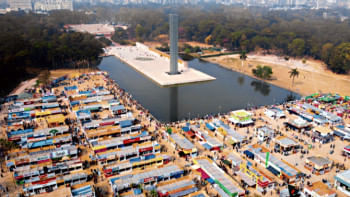
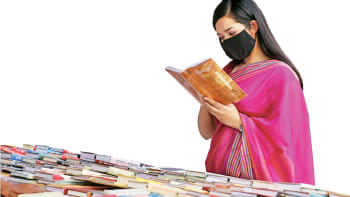
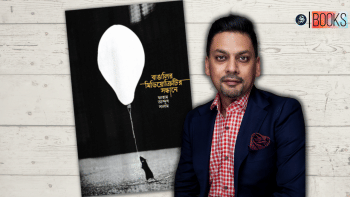
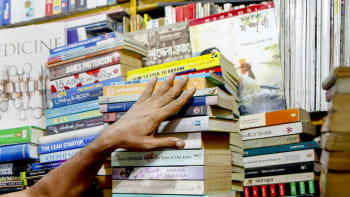






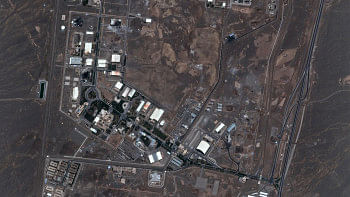
Comments